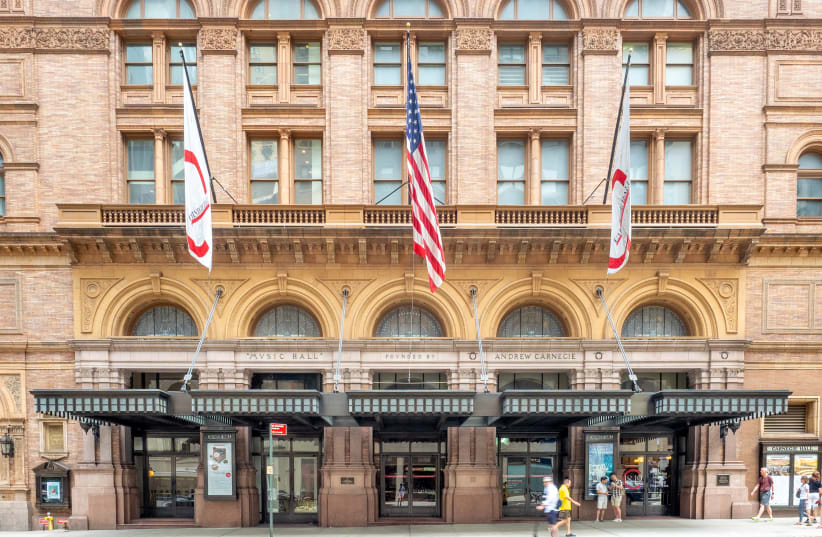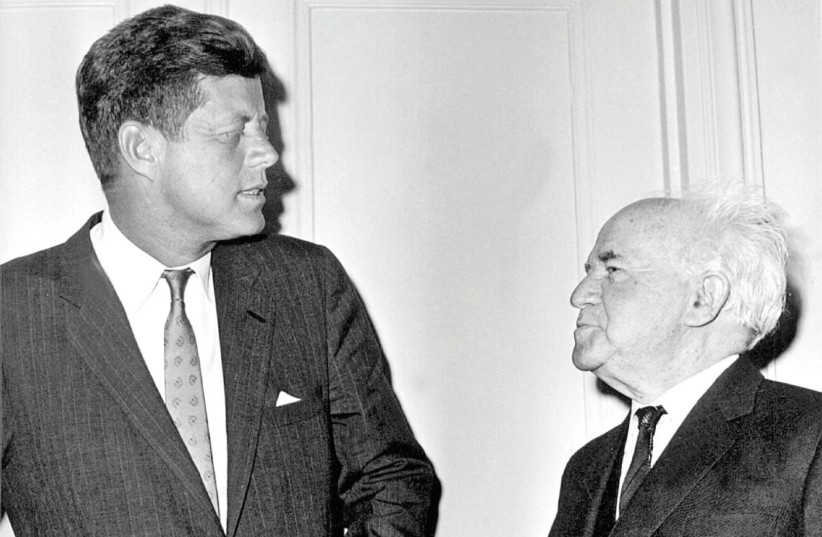Every day the divisions in America deepen, and every day more Americans who represent a rational Center throw their arms up in the air, giving up on any hope of American healing in their lifetime.
In truth, there is only one thing that can restore America, and that is values.
Religion can continue to divide us. Politics will tear us apart. The culture wars will separate us. But all of us agree – essentially – on life’s most important values. Why?
John F. Kennedy said it best, in the last few months of his life, in June 1963: “We all cherish our children’s future.”
We all want to raise our children with good values. And there is an essential agreement on what those values are. From kindness to generosity to family to community, we all agree – both Left and Right – on which values are essentials to bequeath to our children.
Which raises the question, why do we so seldom talk about values?
THIS COMING January 20 we intend to change that. On that day, at Carnegie Hall at our annual gala, The World Values Network will be launching Values University, an attempt to reach a global audience with a discussion of core values.
Values University consists of short- and long-form videos of world leaders and influencers discussing the values that have most animated their lives and inspired their careers. Beautifully produced, they resonate with an audience who are looking to extract meaning in their lives from a digital universe.
There is Bret Stephens, the Pulitzer Prize-winning columnist of The New York Times discussing the value of independent thought. And think about how important that is in a world of prepackaged partisanship and groupthink.
There is Los Angeles Mayor Eric Garcetti arguing for the value of belonging – to a community, a family, a people.
There is Dr. Mehmet Oz, the world’s most famous physician, emphasizing the value of perseverance.
There is African-American journalist Peter Noel fighting for the value of social justice.
And there is Sir Clive Gillinson, executive and creative director of Carnegie Hall, discussing the value of service.
Of special note is a conversation between Prof. Noah Feldman, the renowned Harvard Law professor, and Robert Smith, chairman of the board of Carnegie Hall and the world’s foremost African-American philanthropist.
As the most successful black businessman in American history, Robert has dedicated himself with special vigor to education. It was Robert who in 2019 electrified the world when, in the midst of his commencement speech at Morehouse College, he pledged to pay off the entire loan debt for the nearly 400 students of the graduating class, totaling some $34 million. Morehouse’s President David Thomas called it a “liberation gift” for the students.
And it was Robert who partnered with me to create Values University, pledging to fund the initiative which would promote universal values for the benefit of all humankind. He agreed with me that the dearth of values in America is leading to the death of civility in our nation. What was needed was a values renaissance.
Robert is a good example of how values inspire both a career and philanthropy. A deeply committed family man, he and I share a commitment to biblical values and religious truths.
I’ve been amazed at the spiritual nature of our conversations amid him running what is arguably the world’s most successful technology private equity fund.
And as an Orthodox Jew who is deeply committed to the welfare of his people, I’ve been inspired to witness just how much the welfare of the African-American community means to Robert, especially in the realm of education, to which he is dedicating hundreds of millions of dollars.
The Bible says that a human being is a tree of the field. It’s a unique expression. If we were potatoes or turnips, we would be rightly grounded, but we would inhabit only our own soil, our own communities, our own ethnicities. If we were clouds, we would be lofty, but we would be blown hither and thither, with no hard attachments. But as trees we are designed to be deeply rooted in our own earth – our own traditions, ethnicities, and peoplehood – while never being limited to our own identities. We are designed to grow out into the world and oxygenate the planet.
It’s a mark of Robert’s decency and humanity that he has taken such a deep interest in the Jewish community, serving as one of America’s premiere bridge-builders between the black and Jewish worlds. As one of America’s most successful investors and impactful philanthropists, his words and actions carry tremendous weight in his own community and beyond. And while the press focuses on divisions and rifts emerging in black-Jewish relations, not enough have focused on how the most influential of all African-American businessmen is a phenomenal friend of our people and advocate of universal Jewish values.
I HAVE long been devoted to the relationship between the black and Jewish communities, beginning with my appointment of Cory Booker to be my student president of the Oxford University L’Chaim Society in the early ’90s.
The kinship of the two communities is forged through shared faith-based teachings and a struggle for equality and human dignity which is never-ending.
We have both known the cold chill of chains and the searing crucible of bondage. We have endured second-class status and wholesale slaughter. Each of us still struggles to protect the value of life. And each of us has been guided by our God and his prophets. We have drawn the hope and the strength to prevail from our faith.
Each of us has earned fluency in sacrifice. We’ve worked hard and lost much for our freedom. But we spoke truth to power and never feared. The third rebbe of Chabad, the Tzemach Tzedek, was arrested 22 times for protesting the Russian government when it passed antisemitic laws in 1843. Martin Luther King, the greatest American of the 20th century, was arrested 39 times by the time he was assassinated at age 39.
Together, these sacrifices gave mankind a model by which to make true on “Justice, justice thou shalt pursue.”
Indeed, it was civil rights leaders who gave our God, our prophets and our message of liberation a far-reaching and eloquent voice.
It was Dr. King who took the Hebrew Bible and transformed it into a modern liberation manifesto, thereby demonstrating to the Jewish community, which often looks at its own texts and traditions as ossified, the contemporary power of Jewish prophecy and values.
And it was King who, the night before he was murdered, so beautifully articulated the eternal human yearning of going to the mountaintop. “I have seen the Promised Land!… I may not get there with you. But we as a people will get to the Promised Land.”
King brought the Bible earthward and made it what God meant it to be: an agent of social justice.
The African-American community has had many great fighters for equality. Many were pastors. Others were activists. With Robert Smith, social-justice activism has now permeated the boardrooms of Wall Street.
As more bridges are built between the black and Jewish communities, it becomes clear that what binds us most is not a shared history of ruthless persecution but shared values that push us to the mountaintop.
And when Martin Luther King proclaimed the dream of being “Free at last,” he meant not only political but cultural liberation. Being freed of rancid partisanship that puts tribalism before the human family and political party before nationhood, denying us the vision to see the spark of the divine in every one of God’s children.
The writer, whom Newsweek and The Washington Post call “the most famous rabbi in America,” has just published Kosher Hate: How to Fight Jew-Hatred, Racism, and Bigotry. Follow him on Instagram @RabbiShmuley.

